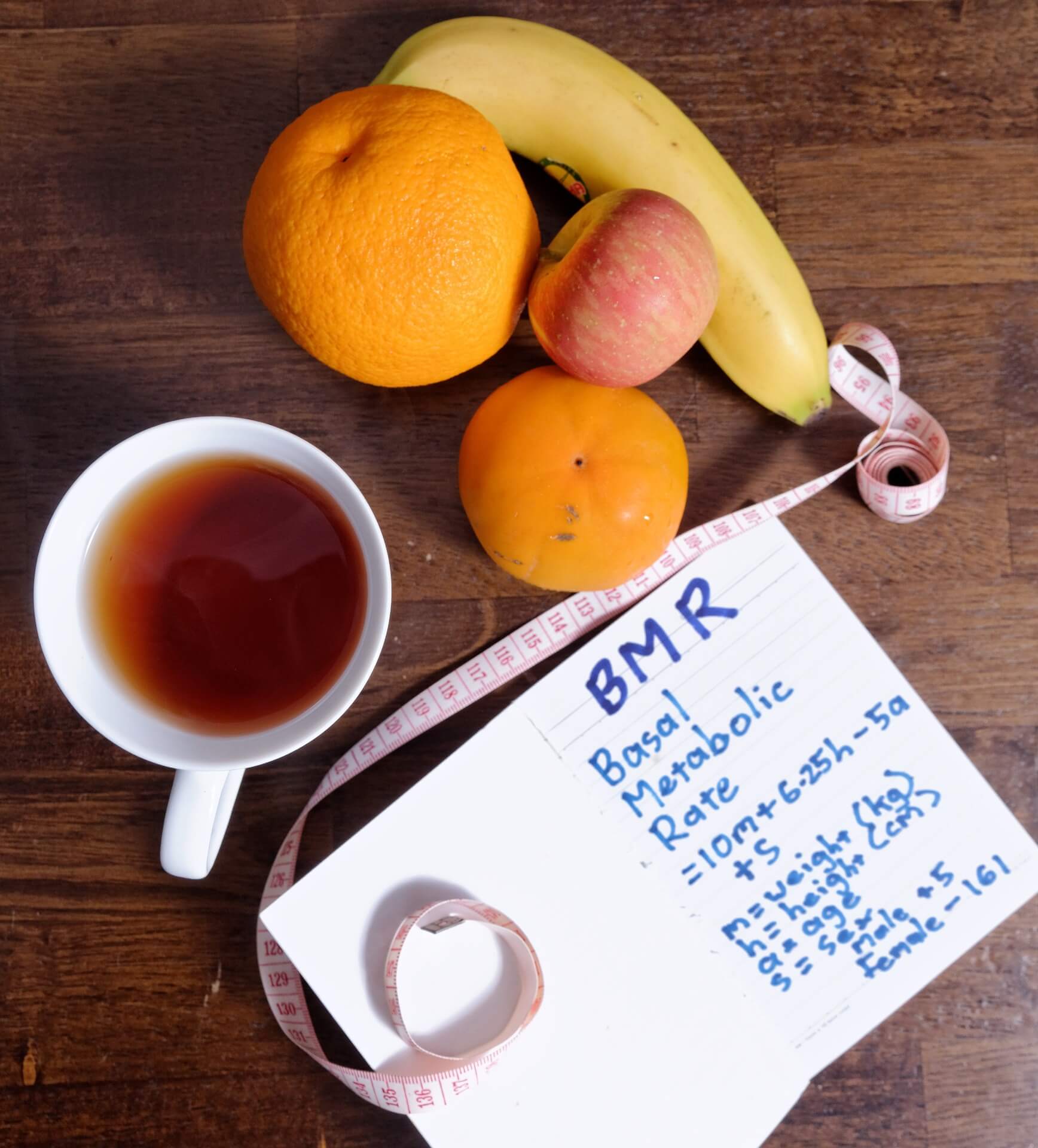Why It Is Harder for Short People to Lose Weight

As someone who is vertically challenged—5’ tall and most likely shrinking—I have spent all of my life climbing on and off stools to grab whatever was out of reach, which at times seems like a lot. I have been known to climb the shelves of the grocery store to reach what I need on the top shelf. When at the Louvre last summer, there was no way I could see over anyone’s head to even glimpse the Mona Lisa. I take it all in stride though, comforted by the fact that studies show shorter people live longer than our taller brethren. I figure all of that climbing is a small price to pay for a couple of extra years. Imagine the bursting of my smug little bubble when I recently read that a scientific study suggests it is harder for short people to lose weight than those who are tall. Drat…karma!
The Science Behind the Study
The study, published in the medical journal PLOS ONE, included 330 Caucasian individual, 202 females and 128 males, between the ages of 18 and 78 and with BMI figures of 15.9 to 47.8 kg/m2. Researchers looked at resting energy expenditure, also known as REE—which is almost the same thing as basal metabolic rate—as it relates to height, weight and body composition, which includes fat-free mass and its components such as skeletal muscle mass, organs that have high metabolic rates, such as the heart, brain, kidneys, and liver.

Researchers discovered that body composition is scaled proportionately to height and weight so that someone who is taller will have larger organs than someone who is shorter. Research also showed that scaling exponents of height greatly exceeded the corresponding exponents of weight for fat-free mass, skeletal muscle, brain, heart, and liver. Researchers assert that the difference in resting energy expenditure between study participants is contributable to size differences in the liver, brain, kidneys, and muscle. These differences, researchers calculated, accounted for 43% of the differences in resting energy expenditure between subjects.
But What Does It Mean?
In a nutshell, the research suggests that taller individuals have faster metabolisms and burn calories at faster rates than do shorter people. This is due in part to the size of their organs, particularly those with high metabolic rates as mentioned above. Short people have smaller organs and thus a lower metabolic rate as it relates to those vital organs, meaning that we burn fewer calories both while resting and while exercising.

Short people also tend to have less lean muscle mass than tall people. Lean muscle mass is what helps you burn calories whether your body is at work physically or at rest.
What Is a Short Person to Do?
With so much stacked against us physiologically and metabolically, what can we do to lose weight or to keep current weight in check? The key is to increase your metabolic rate—or REE—so that you burn more calories when you are exercising and even when you aren’t.
The best way to increase your REE is to develop lean muscle mass, which increases the number of calories you burn both at rest and while exercising. One way to do this is to incorporate some strength training into your regular exercise regimen. Lifting weights, or even just your own body weight, is a good way to develop lean muscle mass. A pound of human muscle will generally burn six calories a day, just for maintenance, while a pound of human fat will only burn around two calories a day. You don’t have to become a bodybuilder to realize the benefits you can get from strength training. Thirty minutes of training two to three times per week is enough to make an impact.
Another way to increase your metabolism is to pump up the level of your aerobic exercise. Although aerobic exercise doesn’t result in huge muscle gains, it does increase your metabolism in the hours following a workout. High-intensity exercise, such as high-intensity interval training (HIIT), delivers a bigger, longer boost in REE than does exercise that is low to moderate in intensity. If workouts like HIIT aren’t for you, try to incorporate short bursts of higher intensity exercise into your normal routine, such as a short jog during your walk or short sprints during your run.

Staying well hydrated is important to overall health but also is important to your metabolic rate. Water helps your body burn calories and if you are even a little bit dehydrated, it can slow down your metabolism. Although the old guideline of eight glasses of water per day is a good starting point, the Institute of Medicine recommends that men drink 13 cups of water per day and women drink nine cups. In addition, rather than snacking on salty foods such as chips and pretzels, choose veggies and fruits with high water contents.
In addition to choosing snacks that are healthier, snacking more often can (surprisingly) help you lose weight. Eating large meals many hours apart can slow down your metabolism. Eating a small meal or even a snack every three or four hours will help keep your metabolism working, which can mean more calories burned throughout the day. Choosing healthy snacks throughout the day also might decrease the amount you eat at mealtimes.
At mealtimes and snack times, increasing your intake of protein will help your body burn more calories. Your body has to work harder to digest protein, thus burning more calories than carbohydrates and/or fat. Replacing some carbohydrates with lean proteins such as white meat chicken, fish, lean beef, turkey, tofu, beans, nuts and low- or no-fat dairy can speed up your REE.

Likewise, drinking coffee in moderation or green or oolong tea can rev up your metabolism. Drinking some coffee prior to exercise can help you feel more energetic and even bolster your endurance. And the caffeine and catechins in tea have been shown to speed up the metabolism for a few hours. Research asserts that drinking two to four cups of either type of tea can increase the calorie burn of moderately intense exercise by 17%.
If you are trying to lose weight by increasing your metabolism, avoid crash diets as they often compromise your nutritional intake and cause your body to lose muscle, which in turn, slows your metabolism. Initially you may drop a couple of pounds on a crash diet but in the long run, they do more harm than good.
One Last Thing
It is important to note that height isn’t the only thing that determines how easy or hard it is to lose weight. There are plenty of tall people who battle to lose weight but their height gives them a bit of an advantage. For us vertically challenged folks, the struggle can be real, whether trying to lose weight, climbing up on a step stool or scaling the shelves at the grocery store. It may require more work but hasn’t it always?
Sources
Latest Articles
 Is Running on a Treadmill Easier Than Running Outside?Runners have their own preferences, whether it is treadmill running, running outside on the road, or exploring trails. So...
Is Running on a Treadmill Easier Than Running Outside?Runners have their own preferences, whether it is treadmill running, running outside on the road, or exploring trails. So... Is It OK to Use Trail Running Shoes on the Road?While trail running shoes can be used on roads, especially in situations where a runner encounters mixed terrains or pref...
Is It OK to Use Trail Running Shoes on the Road?While trail running shoes can be used on roads, especially in situations where a runner encounters mixed terrains or pref... How to Fix Sore Quads After Running?Rest, ice, gentle stretching, and over-the-counter pain relievers can help soothe sore quads after running. Also, ensure ...
How to Fix Sore Quads After Running?Rest, ice, gentle stretching, and over-the-counter pain relievers can help soothe sore quads after running. Also, ensure ... 10 Fruits With The Most Electrolytes to Replace Sports DrinksThese fruits are high in electrolytes such as potassium, magnesium, and calcium, essential for hydration, muscle function...
10 Fruits With The Most Electrolytes to Replace Sports DrinksThese fruits are high in electrolytes such as potassium, magnesium, and calcium, essential for hydration, muscle function...

